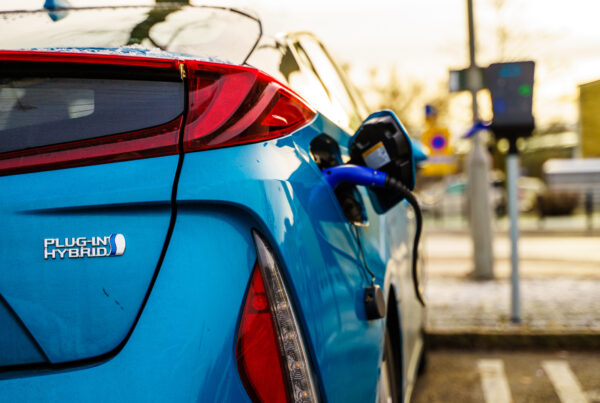It is increasingly common (and encouraging) to see organisations considering how they gain increased control over their fleet while reducing the costs. The difficulty many seem to face is – where do we start?
Some of the common options (amongst others) to be immediately considered include:
- Should we buy instead of lease? Should we lease instead of buy?
- Do we start purchasing different vehicles?
- If we hang onto the vehicles for longer will it be cheaper?
- Should we replace older vehicles with newer, more fuel-efficient ones?
- What is the best fuel option – Petrol, Diesel, Hybrid or Electric?
While these are all worthwhile considerations, it is important not to jump into ‘solution mode’ before you really understand the problem you are trying to solve.
So, while I certainly encourage utilising fleet consulting services to get the right expertise in reviewing your fleet, my suggestion for those facing this dilemma is to first fully understand your fleet utilisation.
Fleet utilisation
Too often, these words are thrown out there in an ‘all-encompassing’ manner in fleet management discussions. This is understandable as there are many aspects of managing a fleet that could be considered ‘utilisation’.
However, it is imperative to recognise that fleet utilisation is the most fundamental driver of fleet costs.
Fleet utilisation also has significant implications relating to risk management and compliance that must be considered in any organisation.
Those less familiar with both the term fleet utilisation and its importance tend not to operate a fleet management software as this is a core deliverable of these systems.
A good fleet management software will provide both the underlying and actionable insights on key aspects of fleet utilisation that enable effective decision making.
Fundamental considerations
So, let’s break fleet utilisation down into the important main elements:
- Fleet Size – this should not be a surprise; every vehicle in the fleet costs dollars to run on an ongoing basis. Every organisation needs to understand the fundamental principles of supply versus demand when it comes to their fleet. How many vehicles it has (supply) and how many vehicles it needs (demand). Internally, employees may often pitch for more vehicles as a result of both the increased convenience and benefit that they may obtain. Just remember, either an excess in supply or demand is likely to be costing your organisation. Think of it this way: Excess supply = excess costs, whereas excess demand = lost sales. ‘Right sizing’ a fleet is critical. The following elements (fleet usage and fleet mix) will, of course, contribute substantially to this, making it the most critical, especially For multi-site operations.
- Fleet usage – do you know how often vehicles are being used and what they are being used for? Do vehicles spend a lot of time idle? What is the percentage of business use versus private? Aspects of fleet usage are incredibly varied and have a direct relationship with cost. This is especially true when considering the whole of life cost (WOLC) and total cost of ownership (TCO) of any vehicle as usage directly impacts the vehicles’ depreciation, service and maintenance costs, and fuel costs. Optimal utilisation of any asset is a major contributor to return on investment (ROI). Paying for vehicles that are not being efficiently used to meet organisational objectives requires scrutiny.
- Fleet mix – in concert with fleet usage, it is important to understand whether the vehicles in the fleet are ‘fit for purpose’ in meeting the requirements of the organisation. Are there vans being used when a small passenger vehicle is all that is required? Are 4WDs being purchased without the need to go off-road? Aligning good vehicle selection and the right fleet mix to meet with the organisational needs is not only an important cost consideration but has implications for driver safety.
-
Data is key

Fleet utilisation is all about measuring the performance of the vehicles you have employed. Informed decisions cannot be made based on ‘gut feel’ or internal requests for more and/or different vehicles.
Decision making should be supported and facilitated by data. There are several standard metrics that can be used, relating to usage, availability, idle time, kilometres travelled etc.
Measurement and reporting of key data is greatly enhanced where a fleet management software is enabled, particularly those incorporating in-vehicle monitoring systems (IVMS). These platforms provide far greater insights relating to vehicle utilisation through both the quantity and quality of data they have available.
The goal – fleet optimisation

Ultimately, a good understanding of fleet utilisation should provide multiple opportunities for fleet optimisation. Yes, it is time to consider solutions.
Options for optimising your fleet will, of course, be as varied as the many aspects of utilisation. They could include the implementation of a pool vehicle booking system, redeploying assets to other locations, disposing of excess vehicles, making changes in vehicle mix, offering novated leases to employees, and the list goes on.
This is where the deployment of a good fleet management software provides the best ROI. They enable a thorough understanding of utilisation as a core capability through comprehensive reporting and actionable insights at both an overall fleet and cost centre (department/location) level.
Key measurements and analysis relating to active driving times (and conversely idle times), usage patterns, and driver behaviour enable the delivery of optimisation reporting that eliminates any guesswork.
Importantly, they facilitate the implementation of vehicle sharing that delivers a ‘vehicles on-demand’ approach while compliant record-keeping of driver use should the need arise.
The alignment and deployment of the best solutions to achieve your organisations’ strategic objectives should start with knowing and understanding Fleet Utilisation.
Paul Oliver is the Director & Principal Consultant of Fleet Advisory and is an Accredited Supplier Member of AfMA. Paul provides independent expert advice and consulting services relating to fleet and mobility solutions.




















